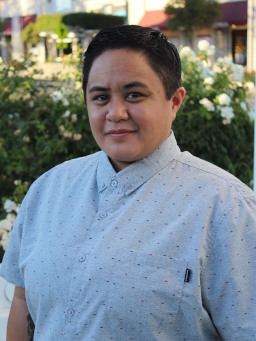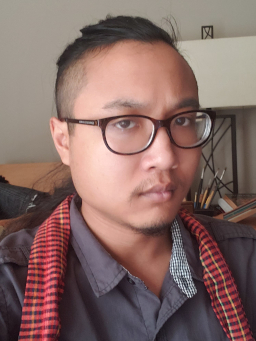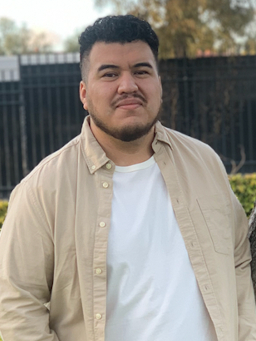cohort 2020-2022
Latest News

Jasmine A. Abang
Hometown: Los Angeles, CA
Major(s): History and Women's Studies
Graduate Interests: Colonial México; Colonialism; Native Peoples; Women's Perspective in History
Scholarships and Academic Awards: Dean's List; Mellon Mays Undergraduate Fellowship; Pamela D. Emerson Environmental and Social Justice Scholarship
MMUF Mentor: Kerry Shannon
Research Project Title: El disminuir el incremento de Los Latinos: Forced Sterilizations of Latina Women in Los Angeles.
Research Project Abstract: My current research will explore colonialism and its impact on the late 19th century – early 20th-century immigration of Mexicans into Los Angeles, California. I move to look further in-depth on how racial sentiments of fear-mongering Anglos blamed Mexicans for the lack of job opportunities and is the root of social and economic problems. Eventually, these racial sentiments would shape public health policies and regulate brown immigrant women's bodies via forced sterilization. I will be focusing on the sterilizations that took place at the Los Angeles County – USC Medical Center, the hub of aggressive sterilizations in the United States by Eugenic historians.
By utilizing Latina women's voices, I hope this research brings an awareness of these atrocities and the devastation that prejudice sentiments have on the immigrants, people of color, and women on the receiving end. Additionally, I hope this research illuminates a connection to growing present-day issues of race, class, and gender and inspires further activism for social justice and reproductive rights.

Kevin Keo
Hometown: Long Beach, CA
Major(s): Anthropology, Archaeology Concentration
Minor: Asian Pacific Studies
Graduate Interests: Archaeometallurgy of Southeast Asia, Pre and Postcolonial Cambodian history
Scholarships and Academic Awards: Mellon Mays Undergraduate Fellow
MMUF Mentor: Dr. Kenneth Seligson
Research Project Title: “Surviving Khmer: Identity Formation and Maintenance in Second Generation Cambodian Americans”
Research Project Abstract: The experience of growing up in American culture and how second-generation Cambodian Americans self-identify, is a result of several factors, some of which stem from the historical trauma of the Khmer Rouge and the subsequent integration process of their parents into American society. This experience has led to the construction of a new Cambodian-American identity surrounding the loss of language and the ostracization of the community, which separates these second-generation Cambodian Americans from their first- generation Khmer elders. This is further exemplified by the gradual exodus from ethnic enclaves and participation in community events. Though some second-generation individuals are combating this trend, the identity crisis a number of second-generation individuals face will only continue to grow as the third-generation refugees grow up. This study will be conducted in order to gather preliminary data on how members of the second generation identify and their experiences within the Cambodian American community. It is with hope that this research brings to light the importance and difficulty of community cohesion for refugees.

Cesar Ovando
Hometown: Long Beach, California
Major: History/Social Science Education
Minor(s): Indigenous Peoples of the Americas & Anthropology
Graduate Interests: Colonial Studies in the Americas, Mesoamerican Studies, Indigenous Perspectives & Agency in History, Cultural Anthropology in the Americas, and Mesoamerican Archeology
MMUF Mentor: Kenneth Seligson
Research Project Title: “Escapando los Horrores de la Guerra Civil: Guatemalan-Maya Migration and Settlement in the City of Los Angeles.”
Research Project Abstract: Stretching for about thirty-six years, the Guatemalan Civil War was one of the bloodiest and gruesome conflicts in Central America during the late twentieth century, specifically from 1960 to 1996. As a result of brutal confrontations between the U.S backed Guatemalan government and various rebel groups supported by rural peasants and ethnic Maya indigenous peoples, an estimated 200,000 people died with an additional one million missing. Among those killed by the hands of the Guatemalan government, a majority of those people were Mayan people and their descendants as they were the most frequent targets of the war. To escape the horrific nightmare of the Civil War, many of these indigenous people migrated and settled in locations where they felt safe. Some migrated to Petén, which is in the lowlands of Guatemala. Others crossed the border into southern Mexico and took refuge. However, a vast majority of these people emigrated to the United States, specifically in the city of Los Angeles of Southern California.
For my research project, I am interested in investigating the changes and continuities of identity and culture among the Guatemalan-Maya in Los Angeles during and after the Civil War. As a part of my research, I hope to argue that these peoples and their culture were able to escape the horrors of the Guatemalan Civil War and survive by migrating and settling in Los Angeles. Although the city conditions have added pressure to the Central American communities to assimilate with the Anglo culture, the Guatemalan-Maya were able to hold on to their traditions and pass it on to their descendants in the present. Using a wide net of both primary and secondary sources from Guatemala and Los Angeles, I can argue against the U.S imperialist perspective, which neglects the voices of the indigenous peoples from the war to migration and settlement.